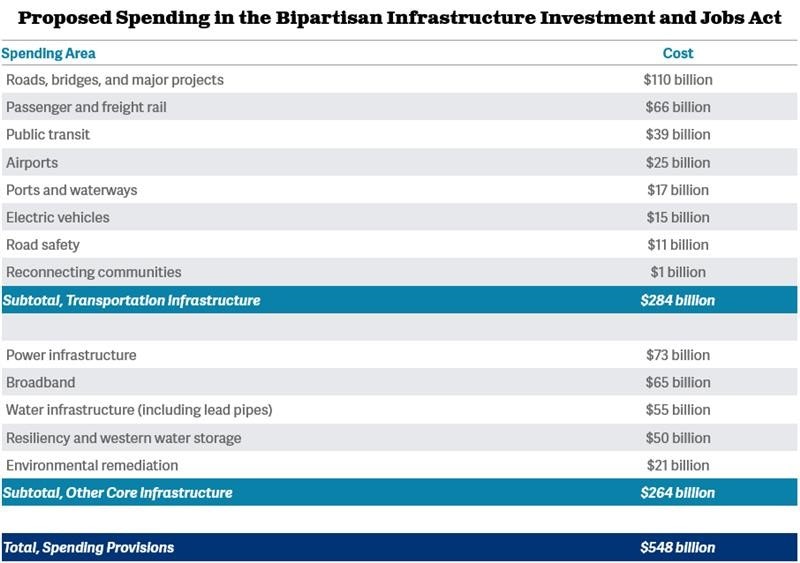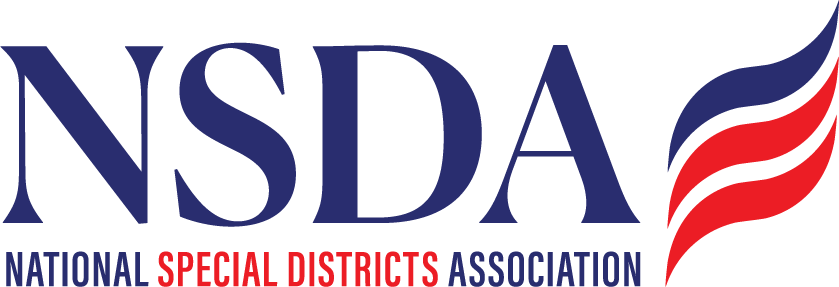$1T Bipartisan Infrastructure Package Making Moves in Senate This Week
August 2, 2021 |
A bipartisan group of senators working closely to craft a long-awaited infrastructure bill over the past several months released Sunday evening the 2,702-page text of their five-year Infrastructure Investment and Jobs Act.
The proposal includes full reauthorization of the surface transportation bill in addition to investments in the power grid, broadband, water infrastructure, resiliency and western water storage, environmental remediation, and more. The legislation totals near $1 trillion, including an estimated $548 billion in new federal spending with the balance sourced from existing, planned investments in roads, highways, and bridges.
While an official detailed section-by-section summary of the bill is not yet available, the White House released last week a fact sheet on the bill, which outlines the top-level funding allocations for the package. Additionally, a more detailed unofficial summary of the legislation was circulated to senators last week, providing additional information on the broader bill.
Spending Breakdown

The Road Ahead: What’s Next for the Infrastructure Deal?
Senate debate on the bipartisan infrastructure bill has officially begun and will continue over the next several days, with votes on several dozen amendments likely to take place.
Senate Majority Leader Chuck Schumer, D-N.Y., said Sunday evening that a final vote on the bill could be held “in a matter of days.” However, the legislative process in the Senate is likely to drag into early next week, since it is unclear how many amendments there will be, or what changes they could cause in the legislation.
Once the Senate passes the Infrastructure Investment and Jobs Act, the Chamber is expected to take up a $3.5 trillion Fiscal Year 2022 budget resolution before leaving Washington for the annual August recess. The budget resolution would clear the path forward for Senate Democrats to pass an expansive economic package to address climate change, health care, and education. The resolution is expected to pass on a party line vote, although key moderates in the party are hesitant to support a final package of that size.
Once the Senate passes the FY22 budget resolution, the House would likely return to Washington quickly to pass it, which would allow House and Senate committees the ability to begin work on their parts of the package.
House Speaker Nancy Pelosi, D-Calif., reiterated last week that the House will not vote on a Senate-passed infrastructure bill until the Senate has also passed a budget reconciliation package (following adoption of the FY22 budget resolution), which is unlikely to occur until October at the earliest, placing the timeline for the bipartisan, physical infrastructure bill to be passed as early as mid-fall.
The National Special Districts Coalition will release a Special Report on the Infrastructure Investment and Jobs Act in the coming week. Stay tuned as this story develops.
